Key Takeaways
- Strategic Career Advancement: Industry-relevant experience is not just a requirement; it’s a strategic tool for career advancement. Tailor your approach to align with current hiring trends.
- Impactful Hiring Decisions: Employers recognize the value of practical knowledge. Showcase your industry-specific skills to stand out and make a lasting impact during the hiring process.
- Future-Ready Skills: Stay ahead with insights into future trends. From virtual reality learning to blockchain credentials, embrace evolving technologies for a future-ready skill set.
Welcome to our comprehensive guide on a topic that sits at the heart of every hiring decision: “What Is Industry-Relevant Experience and Its Impact on Hiring.”
In a dynamic and competitive job market, the importance of industry-relevant experience cannot be overstated.
Employers are constantly seeking candidates who not only possess the right qualifications but also bring a practical understanding of the industry’s nuances.

In this in-depth exploration, we will delve into the very fabric of industry-relevant experience, unraveling its definition, exploring its various forms, and dissecting its profound impact on the hiring landscape.
Whether you’re a seasoned professional looking to enhance your marketability or an employer striving to make informed recruitment decisions, this guide is your roadmap to understanding the intricacies of industry-specific experience and how it shapes the hiring process.
Why Industry-Relevant Experience Matters: Unveiling the Foundation
In the fast-paced and ever-evolving professional realm, businesses seek employees who can seamlessly integrate into their operations, requiring minimal onboarding and training.
This quest has given rise to the concept of industry-relevant experience, a benchmark that goes beyond academic qualifications to gauge a candidate’s practical understanding of the specific challenges, processes, and expectations within a particular industry.
As we embark on this journey, it’s crucial to recognize that industry-relevant experience is not a one-size-fits-all concept.
It encompasses a spectrum of experiences, from direct industry exposure to transferable skills that can be applied across diverse sectors.
This nuanced understanding is what sets exceptional candidates apart and empowers employers to make strategic hiring decisions.
Navigating the Terrain: Defining Industry-Relevant Experience
At its core, industry-relevant experience encapsulates the hands-on knowledge, skills, and insights gained through exposure to a particular industry or field of work.
This experience could be obtained through internships, co-op programs, volunteer work, or even on-the-job training.
It acts as a bridge between theoretical knowledge acquired through education and the practical demands of the professional world.
Join us as we meticulously dissect the components of industry-relevant experience, distinguishing between direct and indirect forms and highlighting the invaluable role of transferable skills.
Through real-world examples and expert insights, we’ll paint a vivid picture of what constitutes true industry acumen and how candidates can strategically position themselves to meet these expectations.
The Hiring Landscape: Unpacking the Impact of Industry-Relevant Experience
As we progress through this exploration, we will uncover the profound impact that industry-relevant experience has on the hiring process.
Employers are increasingly recognizing that candidates with a proven track record of industry-specific exposure bring a myriad of benefits to the table.
From enhanced job performance and quicker adaptability to reduced training time and costs, the advantages of hiring individuals with industry-relevant experience are far-reaching.
Through compelling case studies and interviews with industry experts, we’ll illustrate how this impactful element directly contributes to organizational success and growth.
Embarking on the Journey: How to Gain and Showcase Industry-Relevant Experience
Recognizing the importance of industry-relevant experience is just the first step.
The subsequent sections of this guide will serve as a roadmap for both job seekers and employers, offering actionable insights on how to acquire, showcase, and assess this invaluable asset.
For job seekers, we’ll explore avenues such as internships, co-op programs, networking, and online courses, providing a comprehensive guide on how to strategically gain industry-relevant experience and stand out in a competitive job market.
Simultaneously, employers will gain valuable insights into effective strategies for assessing and leveraging this experience during the hiring process.
Challenges and Solutions: Bridging the Gap in Industry-Relevant Experience
No exploration of this topic would be complete without addressing the challenges that individuals, particularly entry-level professionals, face in obtaining industry-relevant experience.
We’ll unravel the common dilemmas and present practical solutions to bridge the gap between educational qualifications and industry requirements.
Join us as we delve into real-world scenarios, sharing success stories of individuals who overcame entry-level challenges and secured roles by strategically navigating the landscape of industry-relevant experience.
The Future Horizon: Emerging Trends and Evolving Demands
As the professional landscape continues to evolve, so do the requirements for industry-relevant experience.
In the final sections of this guide, we’ll gaze into the future, exploring emerging trends and evolving demands in various industries.
From the impact of technological advancements to the evolving skill sets sought by employers, we’ll equip you with the foresight needed to stay ahead in an ever-changing job market.
Conclusion: Embracing Industry-Relevant Experience in Hiring
As we conclude this extensive exploration, we’ll recap the key takeaways and leave you with actionable insights that will empower both job seekers and employers to navigate the complexities of industry-relevant experience.
Embracing this critical aspect of the hiring process is not just a strategic choice but a transformative one that holds the potential to shape the future of your career or organization.
Get ready to embark on a journey that transcends the conventional boundaries of hiring wisdom.
Whether you’re a job seeker aiming to enhance your employability or an employer striving to build a dynamic and skilled workforce, this guide is your comprehensive companion in understanding, acquiring, and leveraging the power of industry-relevant experience. Let’s dive in.
Before we venture further into this article, we like to share who we are and what we do.
About 9cv9
9cv9 is a business tech startup based in Singapore with a strong presence all over the world.
With over eight years of startup and business experience, and being highly involved in connecting with thousands of companies and startups, the 9cv9 team has listed some important learning points in this overview of What Is Industry-Relevant Experience And Its Impact On Hiring.
If your company needs recruitment and headhunting services to hire top employees, you can use 9cv9 headhunting and recruitment services to hire top talents and candidates. Find out more here, or send over an email to [email protected].
Or just post 1 free job posting here at 9cv9 Hiring Portal in under 10 minutes.
What Is Industry-Relevant Experience And Its Impact On Hiring
- Defining Industry-Relevant Experience
- The Impact on the Hiring Process
- How to Gain Industry-Relevant Experience
- Overcoming Challenges in Obtaining Industry-Relevant Experience
- Tips for Job Seekers
- Employer Strategies for Assessing Industry-Relevant Experience
- Future Trends in Industry-Relevant Experience
1. Defining Industry-Relevant Experience
In the realm of career development and hiring, understanding the essence of industry-relevant experience is paramount.
This section will dissect the concept, providing a comprehensive definition and exploring its various forms.
From direct industry exposure to transferable skills, we’ll delve into the nuanced components that contribute to a candidate’s industry acumen.
Overview and Definition: What is Industry-Relevant Experience?
- Industry-relevant experience encompasses the practical knowledge, skills, and exposure gained by an individual within a specific industry or field of work.
- It acts as a bridge between theoretical education and real-world application, demonstrating a candidate’s ability to navigate industry-specific challenges.

Types of Industry-Relevant Experience
a. Direct vs. Indirect Experience
– Direct Experience: Involves hands-on exposure to the day-to-day operations and challenges of a particular industry. For instance, an individual who has worked in a marketing role for a technology company has direct experience in the tech industry.
– Indirect Experience: Encompasses experiences that, while not directly within the target industry, provide transferable skills. For example, a project manager with experience in logistics may transition smoothly into a project management role in the manufacturing sector.
b. Transferable Skills – Transferable skills are competencies that can be applied across different industries. Examples include communication skills, problem-solving, and leadership abilities. – A marketing professional with strong communication skills gained in the retail sector can seamlessly apply these skills when transitioning to the hospitality industry.
The Role of Internships and Co-op Programs in Gaining Experience
- Internships and co-op programs offer invaluable opportunities for individuals to gain hands-on experience within a specific industry.
- These programs allow participants to apply theoretical knowledge in a practical setting, fostering a deeper understanding of industry dynamics.
Also, read our top guide on the Top 6 Best Job Boards for Hiring Interns.
Example: A student pursuing a degree in computer science secures an internship with a software development company, gaining practical experience in coding, debugging, and collaborating with cross-functional teams.
Networking and Industry Events: Building Industry Connections
- Actively participating in industry-related networking events, conferences, and seminars provides exposure and facilitates connections within the professional community.
- Networking allows individuals to stay informed about industry trends and gain insights from experienced professionals.
Example: An aspiring finance professional attends a banking conference, engaging with industry experts, and gaining a nuanced understanding of current financial trends, which enhances their industry-relevant knowledge.
Online Courses and Certifications: Upgrading Skills Remotely
- Online courses and certifications offer a flexible and accessible way to acquire industry-specific knowledge and skills.
- Many platforms provide courses tailored to various industries, allowing individuals to upskill and stay relevant in a rapidly changing job market.
Example: A marketing professional completes a digital marketing certification program, gaining expertise in the latest online advertising trends and analytics tools, making them more appealing to employers in the digital marketing sector.

Balancing Educational Qualifications with Industry Exposure
- While education provides a foundational understanding, industry-relevant experience complements academic qualifications.
- Striking a balance between educational achievements and practical exposure positions candidates as well-rounded professionals.
Example: An engineering graduate with internship experience in a manufacturing plant not only possesses theoretical knowledge but also practical insights into production processes, making them an attractive candidate for engineering roles in the manufacturing industry.
In summary, defining industry-relevant experience involves recognizing the diverse forms it can take, from direct industry exposure to transferable skills gained in different contexts.
The next section will unravel the impact of possessing such experience on the hiring process, shedding light on why employers increasingly value candidates with a rich tapestry of industry-specific knowledge and skills.
2. The Impact on the Hiring Process
Understanding the impact of industry-relevant experience on the hiring process is crucial for both job seekers and employers.
This section will unravel the profound effects that candidates with practical industry exposure bring to the table, influencing recruitment decisions and organizational success.
Increased Job Performance: The Tangible Advantage
- Candidates with industry-relevant experience often showcase a quicker learning curve and a more profound understanding of job responsibilities.
- Practical exposure equips individuals to navigate industry-specific challenges, contributing to increased efficiency and effectiveness.
Example: An IT professional with direct experience in cybersecurity is likely to adapt swiftly to a cybersecurity role within a financial institution, as they already possess a foundational understanding of the industry’s security requirements.

Quick Adaptability: Navigating Industry Nuances
- Industry-relevant experience instills adaptability, enabling candidates to seamlessly integrate into new roles and industries.
- Individuals with direct exposure often require less training, as they bring a pre-existing understanding of industry nuances and operational practices.
Example: A supply chain manager with experience in the pharmaceutical industry can quickly adapt to a similar role in the consumer goods sector, leveraging their knowledge of logistics, regulations, and supplier relationships.
Reduced Training Time and Costs: A Strategic Business Advantage
- Hiring candidates with industry-relevant experience can lead to substantial cost savings for organizations.
- The need for extensive training is minimized, allowing new hires to contribute productively from the onset.
Example: A marketing professional with experience in a specific niche market requires minimal training on industry-specific terminology and target audience preferences, reducing onboarding costs for the employer.
Strategic Decision-Making: Leveraging Industry Insights
- Individuals with industry-specific exposure bring valuable insights that can inform strategic decision-making within the organization.
- Their understanding of market trends and competitive landscapes enhances the organization’s ability to make informed and forward-thinking decisions.
Example: A finance manager with experience in the technology sector can provide insights into financial strategies that align with the fast-paced and innovative nature of the industry, guiding the organization towards financially sound decisions.
Enhanced Problem-Solving Abilities: Practical Application
- Industry-relevant experience equips candidates with practical problem-solving skills, honed through real-world challenges.
- The ability to apply theoretical knowledge in a practical context enhances a candidate’s problem-solving acumen.
Example: An engineer with direct experience in troubleshooting and resolving issues in manufacturing processes can apply their problem-solving skills to streamline operations in a similar role within a different manufacturing setting.
Cultural Fit: Seamless Integration into Work Environments
- Candidates with industry-relevant experience often demonstrate a better cultural fit within organizations.
- Familiarity with industry-specific norms, values, and communication styles contributes to a smoother integration into the company’s work environment.
Example: An advertising professional with experience in a creative agency is likely to seamlessly integrate into a similar work culture, as they are accustomed to the dynamic and collaborative nature of the advertising industry.
Proven Track Record: Building Employer Confidence
- Industry-relevant experience serves as tangible evidence of a candidate’s ability to thrive in a specific professional setting.
- A proven track record builds confidence among employers, assuring them of the candidate’s potential contributions to the organization.
Example: A project manager with a successful track record of delivering projects within tight deadlines in the construction industry provides evidence of their project management skills, instilling confidence in prospective employers.
Industry-relevant experience significantly shapes the hiring process by offering tangible advantages such as increased job performance, quick adaptability, reduced training costs, and strategic decision-making capabilities.
The next section will guide job seekers on how to strategically gain and showcase industry-relevant experience, enhancing their marketability in the competitive job landscape.
3. How to Gain Industry-Relevant Experience
Acquiring industry-relevant experience is a critical step for individuals seeking to stand out in a competitive job market.
This section will provide a comprehensive guide on various avenues to gain practical exposure within a specific industry, offering actionable insights and real-world examples to empower aspiring professionals.
Internships: Immersive Learning in Real Work Environments
- Identify Opportunities:
- Research and identify companies offering internships within your target industry.
- Leverage online platforms, career fairs, and university career services to discover internship opportunities.
- Apply Strategically:
- Tailor your resume and cover letter to highlight relevant skills and express genuine interest in the industry.
- Showcase any relevant coursework or projects that align with the internship requirements.
Example: A marketing student passionate about digital advertising secures an internship with a leading social media agency, gaining hands-on experience in creating and implementing digital marketing campaigns.

Co-op Programs: Extended and In-Depth Industry Exposure
- Research Co-op Opportunities:
- Explore co-operative education programs offered by universities or industry-specific organizations.
- Look for programs that provide extended periods of work experience to deepen your understanding of the industry.
- Network and Attend Career Events:
- Attend industry-specific career events and networking sessions to connect with professionals who can guide you to co-op opportunities.
- Utilize university career services for information on co-op programs and potential openings.
Example: An engineering student participates in a co-op program with an automotive manufacturing company, gaining a comprehensive understanding of the entire production process over an extended work term.
Networking: Building Connections for Industry Insights
- Attend Industry Events:
- Participate in conferences, seminars, and workshops related to your target industry.
- Engage with professionals, ask questions, and express your eagerness to learn more about the industry.
- Utilize Online Platforms:
- Join industry-specific groups on professional networking platforms like LinkedIn.
- Connect with professionals in your chosen field, and seek informational interviews to understand their career journeys.
Example: An aspiring finance professional attends a financial conference, networks with industry experts, and secures a mentorship opportunity that provides valuable insights and guidance.
Online Courses and Certifications: Flexible Skill Enhancement
- Identify Reputable Platforms:
- Choose online learning platforms that offer courses and certifications relevant to your target industry.
- Platforms like Coursera, edX, and LinkedIn Learning provide a wide range of industry-specific courses.
- Leverage Free Resources:
- Explore free resources and webinars provided by industry associations or educational institutions.
- Supplement your knowledge with both formal courses and practical, hands-on learning.
Example: A technology enthusiast completes an online certification in cybersecurity, acquiring practical skills and knowledge that enhance their marketability in the tech security industry.
Volunteer Work: Contributing to Gain Practical Experience
- Identify Volunteer Opportunities:
- Look for volunteer positions within organizations or projects aligned with your industry of interest.
- Volunteer work can offer hands-on experience while making a positive impact on the community.
- Highlight Transferable Skills:
- Emphasize transferable skills gained through volunteer work on your resume.
- Showcase how your volunteer experiences relate to the industry you are targeting.
Example: A marketing professional volunteers to manage social media campaigns for a local non-profit, gaining practical experience and showcasing their ability to drive engagement and brand visibility.
Utilize University Resources: Career Services and Alumni Networks
- Tap into Career Services:
- Leverage career services provided by your university for information on internships, co-op programs, and job placements.
- Attend workshops and career fairs organized by the university to connect with potential employers.
- Engage with Alumni:
- Connect with alumni working in your desired industry through university alumni networks.
- Seek advice, informational interviews, and mentorship opportunities to gain valuable insights.
Example: A recent graduate explores opportunities through their university’s career services, securing a job in the pharmaceutical industry with the guidance of an alumna who works for a leading pharmaceutical company.
Participate in Hackathons and Competitions: Showcasing Practical Skills
- Explore Industry-Specific Competitions:
- Participate in hackathons, case competitions, or industry-specific challenges.
- These events provide opportunities to showcase practical skills and problem-solving abilities.
- Highlight Achievements:
- Include participation in hackathons or competitions on your resume.
- Describe the specific skills and experiences gained through these events.
Example: A computer science student excels in a cybersecurity hackathon, showcasing their ability to solve real-world security challenges, which enhances their appeal to potential employers in the cybersecurity sector.
In summary, gaining industry-relevant experience involves a strategic combination of internships, co-op programs, networking, online courses, volunteer work, university resources, and participation in industry-specific competitions.
4. Overcoming Challenges in Obtaining Industry-Relevant Experience
Gaining industry-relevant experience is often accompanied by unique challenges, especially for entry-level professionals.
In this section, we’ll address common hurdles and provide actionable strategies for overcoming them, offering valuable insights and real-world examples to empower individuals seeking to navigate these obstacles.
Entry-Level Dilemmas: Navigating the Catch-22
- Challenge:
- Entry-level candidates often face a catch-22 situation where employers seek experience, but obtaining that experience can be challenging without prior opportunities.
- Strategies:
- Leverage Transferable Skills:
- Identify transferable skills gained through coursework, projects, or extracurricular activities.
- Showcase how these skills align with the requirements of the desired industry.
- Highlight Relevant Coursework:
- Emphasize relevant coursework on your resume, demonstrating a theoretical foundation in the industry.
- Connect classroom knowledge to practical applications through project highlights.
- Leverage Transferable Skills:
Example: A recent graduate with no direct industry experience emphasizes their coursework in data analytics, showcasing a capstone project that involved analyzing real-world datasets, demonstrating practical application.

Bridging the Gap between Education and Industry Requirements
- Challenge:
- Bridging the gap between educational qualifications and specific industry requirements can be challenging, especially when certain skills are not covered in academic curricula.
- Strategies:
- Online Courses and Certifications:
- Identify gaps in your skill set and enroll in online courses or certifications to fill these knowledge voids.
- Showcase completed courses on your resume to demonstrate proactiveness in acquiring industry-specific skills.
- Freelance or Project Work:
- Seek freelance opportunities or personal projects related to your target industry.
- Highlight these experiences to show practical application and initiative.
- Online Courses and Certifications:
Example: An aspiring graphic designer lacking industry-specific software skills completes online courses in advanced design software, subsequently showcasing proficiency in these tools through a self-initiated design project.
Networking Challenges: Breaking into Professional Circles
- Challenge:
- Establishing a network within the industry can be challenging for individuals who are just starting their careers.
- Strategies:
- Utilize Online Platforms:
- Leverage professional networking platforms like LinkedIn to connect with industry professionals.
- Engage in conversations, join relevant groups, and express genuine interest in learning from experienced individuals.
- Attend Virtual Events:
- Participate in virtual industry events and webinars, which provide opportunities to network with professionals.
- Follow up with personalized connection requests after engaging in virtual events.
- Utilize Online Platforms:
Example: A recent graduate in marketing attends a virtual marketing summit, actively participates in discussions, and connects with speakers and attendees, expanding their professional network within the industry.
Limited Industry Exposure: Gaining Practical Insights
- Challenge:
- Limited exposure to the industry’s day-to-day operations can hinder the development of practical insights that employers value.
- Strategies:
- Informational Interviews:
- Conduct informational interviews with professionals currently working in the industry.
- Seek insights into their daily responsibilities, challenges, and advice for aspiring individuals.
- Job Shadowing or Internship Shadowing:
- Inquire about opportunities for job shadowing or short-term internships to gain firsthand experience.
- Even brief exposure can provide valuable insights and enhance industry-specific knowledge.
- Informational Interviews:
Example: An individual interested in event planning schedules informational interviews with professionals in the field, gaining insights into event coordination and client management, which contributes to their industry-specific knowledge.
Overcoming Location Barriers: Expanding Horizons
- Challenge:
- Geographic limitations can pose challenges for individuals seeking industry-relevant experience, especially if they are in regions with fewer opportunities in their desired field.
- Strategies:
- Remote Internships:
- Explore remote internship opportunities offered by companies across different locations.
- Highlight your ability to work in a virtual environment, showcasing adaptability.
- Networking Beyond Borders:
- Connect with professionals and organizations beyond your immediate geographical area.
- Emphasize your willingness to relocate or work remotely, expanding your pool of potential opportunities.
- Remote Internships:
Example: A marketing enthusiast living in a smaller city secures a remote internship with a digital marketing agency based in a larger metropolitan area, demonstrating the ability to contribute effectively from a distance.
Demonstrating Adaptability: Showcasing Flexibility
- Challenge:
- Employers value candidates who can adapt to different work environments and industries, presenting a challenge for those with limited exposure.
- Strategies:
- Emphasize Transferable Skills:
- Highlight transferable skills that are applicable across various industries.
- Illustrate how these skills make you adaptable and capable of thriving in different professional settings.
- Diverse Project Engagement:
- Engage in diverse projects or roles, even if they are not directly aligned with your target industry.
- Emphasize your ability to learn quickly and apply skills in different contexts.
- Emphasize Transferable Skills:
Example: An individual with a background in project management works on projects spanning various industries, showcasing adaptability and a capacity to excel in different professional environments.
In summary, overcoming challenges in obtaining industry-relevant experience involves a combination of strategic approaches, emphasizing transferable skills, filling knowledge gaps, building professional networks, gaining practical insights, expanding horizons, and showcasing adaptability.
5. Tips for Job Seekers
For job seekers aiming to secure roles in their desired industries, a strategic approach is essential.
This section provides a comprehensive guide with actionable tips, real-world examples, and insights to empower individuals in their job search journey.
Tailoring Resumes and Cover Letters: Craft a Compelling Narrative
- Customization is Key:
- Tailor your resume for each application, aligning it with the specific requirements of the job.
- Highlight relevant experiences, skills, and accomplishments that resonate with the industry.
- Showcase Achievements:
- Quantify your achievements to demonstrate the impact of your contributions.
- Use metrics and numbers to provide a tangible representation of your success.
To create the best resume in under 5 minutes, try UrbanCV, the world’s first modern CV Builder.
Example: A sales professional applying for a position in the technology industry emphasizes their success in achieving a 20% increase in sales within a competitive market, showcasing their ability to drive results.
Highlighting Transferable Skills: Emphasize Versatility
- Identify Transferable Skills:
- Recognize and emphasize transferable skills gained through education, previous roles, or extracurricular activities.
- Showcase how these skills can be applied in the context of the target industry.
- Adaptability is a Strength:
- Highlight instances where you demonstrated adaptability and quickly learned new skills.
- Illustrate how your diverse skill set makes you versatile and well-suited for different roles.
Example: A recent graduate with a background in psychology applying for a human resources position emphasizes their strong communication and interpersonal skills, showcasing their ability to excel in people-oriented roles.
Showcasing Industry-Relevant Projects: Practical Application Matters
- Feature Relevant Projects:
- Include industry-relevant projects, internships, or freelance work on your resume.
- Provide details on your role, the challenges faced, and the outcomes achieved.
- Demonstrate Impact:
- Clearly articulate the impact of your contributions to convey the value you brought to each project.
- Use project descriptions to tell a compelling story of your practical experiences.
Example: A marketing professional seeking a role in content creation includes a portfolio of blog posts and social media campaigns they’ve successfully executed, showcasing their ability to create engaging and impactful content.
Networking Effectively: Build Meaningful Connections
- Utilize Professional Platforms:
- Actively engage on professional networking platforms like LinkedIn to connect with industry professionals.
- Personalize connection requests and express genuine interest in learning from others.
- Attend Industry Events:
- Attend virtual or in-person industry events, conferences, and meetups.
- Network with professionals, ask insightful questions, and follow up with personalized messages.
Example: A finance graduate connects with professionals in the banking industry on LinkedIn, participating in online discussions and later securing informational interviews that provide valuable insights into the industry.
Effective Job Search Strategies: Cast a Wide Net
- Utilize Job Search Platforms:
- Leverage online job portals and platforms such as 9cv9 to explore a wide range of opportunities.
- Set up job alerts to stay informed about new openings that align with your career goals.
- Diversify Your Approach:
- Explore multiple avenues, including company career pages, recruitment agencies, and industry-specific job boards.
- Consider reaching out directly to companies of interest, expressing your enthusiasm and inquiring about potential opportunities.
Example: A software developer actively searches for opportunities on 9cv9, connects with tech companies directly, and also explores positions posted on specialized platforms catering to the software development industry.
Optimize Your Online Presence: Craft a Professional Brand
- Polish Your LinkedIn Profile:
- Ensure your LinkedIn profile is complete, highlighting your skills, experiences, and aspirations.
- Use a professional photo and write a compelling headline that reflects your career goals.
- Clean Up Social Media:
- Review and clean up your social media profiles to present a professional image.
- Showcase your interests and activities that align with the industry you are targeting.
Example: A marketing professional optimizes their LinkedIn profile by adding industry-relevant keywords, showcasing their achievements, and engaging in discussions, creating a strong online presence.
Prepare for Industry-Specific Interviews: Demonstrate Your Fit
- Research Industry Trends:
- Stay updated on the latest trends, challenges, and innovations within your target industry.
- Reference industry-specific knowledge during interviews to demonstrate your understanding.
- Practice Industry-Relevant Scenarios:
- Prepare for common industry-specific interview questions by practicing responses.
- Use the STAR (Situation, Task, Action, Result) method to provide structured and impactful answers.
Example: A candidate applying for a project management role in the construction industry researches ongoing projects, industry regulations, and incorporates this knowledge into their interview responses, showcasing a deep understanding of the industry.
In conclusion, these tips offer a roadmap for job seekers to navigate the job market strategically.
By tailoring resumes, highlighting transferable skills, showcasing relevant projects, networking effectively, diversifying job search strategies, optimizing online presence, and preparing for industry-specific interviews, individuals can enhance their marketability and increase their chances of securing roles in their desired industries.
The next section will provide valuable insights from employers, shedding light on their perspectives and expectations regarding industry-relevant experience in candidates.
6. Employer Strategies for Assessing Industry-Relevant Experience
Effectively evaluating a candidate’s industry-relevant experience is crucial for employers seeking to build a skilled and dynamic workforce.
This section provides comprehensive strategies and insights for employers to assess the practical knowledge and skills candidates bring to the table.

Effective Interview Questions: Probing Industry-Specific Knowledge
- Tailor Questions to the Industry:
- Craft interview questions that directly assess the candidate’s understanding of industry-specific concepts, trends, and challenges.
- Focus on scenarios and ask how the candidate would approach real-world situations within the industry.
- Explore Practical Application:
- Pose questions that require candidates to demonstrate how they have applied their knowledge in previous roles or projects.
- Encourage detailed responses that showcase their ability to translate theory into practical outcomes.
Example: In assessing a candidate for a software development role, ask, “Can you provide an example of a challenging coding problem you encountered in a previous project and how you resolved it?”
Skills Assessments and Tests: Practical Application in Action
- Create Realistic Simulations:
- Develop skills assessments or tests that mirror tasks employees would encounter in the actual workplace.
- Assess the candidate’s ability to apply industry-specific skills within a controlled environment.
- Evaluate Problem-Solving Abilities:
- Include scenarios that require candidates to solve problems relevant to the industry.
- Measure their analytical thinking, decision-making, and problem-solving skills in real-world contexts.
Example: A marketing candidate might be given a simulation where they need to create a brief digital marketing plan for a new product launch, showcasing their ability to apply marketing strategies.
Portfolio and Project Evaluation: Assessing Tangible Contributions
- Review Work Samples:
- Request candidates to submit a portfolio or work samples showcasing their projects, achievements, and contributions.
- Examine the depth of their involvement, the impact of their work, and the alignment with industry standards.
- Evaluate Project Outcomes:
- Focus on the outcomes and results achieved in their projects.
- Assess the candidate’s ability to deliver tangible results that align with industry expectations.
Example: A graphic designer’s portfolio may include visual samples of past projects, allowing the employer to evaluate their design style, creativity, and the effectiveness of their work in communicating a message.
Behavioral Interview Techniques: Uncovering Soft Skills
- Probe for Soft Skills:
- Incorporate behavioral questions that assess soft skills essential for success in the industry.
- Evaluate communication, teamwork, adaptability, and other interpersonal skills relevant to the workplace environment.
- Seek Examples of Collaboration:
- Ask candidates to share instances where they collaborated with team members, clients, or other stakeholders.
- Assess their ability to work effectively within the collaborative dynamics of the industry.
Example: In evaluating a candidate for a project management role, inquire about a time when they had to navigate conflicting priorities within a project team, highlighting their ability to manage interpersonal challenges.
Industry-Specific Certifications and Training: Validating Expertise
- Recognize Reputable Certifications:
- Acknowledge industry-specific certifications and training programs.
- Consider candidates who have invested in continuous learning and possess certifications relevant to the industry.
- Validate Practical Application:
- Assess how candidates have applied the knowledge gained through certifications in real-world scenarios.
- Validate their ability to transfer theoretical learning into practical solutions.
Example: For a cybersecurity position, consider candidates with certifications such as Certified Information Systems Security Professional (CISSP) and evaluate how they have implemented security measures in previous roles.
Reference Checks and Recommendations: Verifying Industry Impact
- Contact Previous Employers:
- Conduct thorough reference checks to verify the impact of the candidate’s contributions in previous roles.
- Inquire specifically about the candidate’s industry-specific knowledge and practical application.
- Seek Recommendations from Industry Peers:
- Connect with professionals in the industry who may have worked with the candidate.
- Obtain recommendations that provide insights into the candidate’s industry acumen.
Example: In reference checks for a sales role in the pharmaceutical industry, inquire about the candidate’s understanding of pharmaceutical products, their ability to navigate healthcare regulations, and their impact on sales growth.
Case Studies and Situational Assessments: Simulating Real Challenges
- Present Industry-Specific Challenges:
- Develop case studies or situational assessments that mirror challenges the candidate may encounter in the industry.
- Assess their approach, problem-solving, and decision-making in response to these scenarios.
- Evaluate Analytical Thinking:
- Measure the candidate’s ability to analyze complex situations and propose effective solutions.
- Focus on their analytical thinking and strategic decision-making in industry-specific contexts.
Example: A finance candidate could be presented with a case study involving financial analysis for a company in the manufacturing sector, evaluating their ability to assess financial health and propose strategic recommendations.
Cultural Fit Assessment: Aligning with Industry Norms
- Understand Industry Culture:
- Assess whether candidates align with the cultural norms and values prevalent in the industry.
- Consider how well they embrace the industry’s work ethic, communication style, and collaborative dynamics.
- Evaluate Alignment with Company Values:
- Examine the alignment between candidates’ values and the values of the organization within the industry.
- Consider how well their personal values integrate with the professional expectations of the industry.
Example: In evaluating a candidate for a role in a creative agency, assess their fit with the industry’s dynamic and innovative culture, ensuring their approach aligns with the creative and collaborative nature of the sector.
Continuous Feedback Loop: Iterative Improvement in Evaluation
- Collect Feedback from Interviewers:
- Encourage interviewers to provide feedback on candidates’ industry-relevant experience.
- Establish a collaborative feedback loop to identify areas of improvement in the evaluation process.
- Iterate Based on Learnings:
- Continuously refine the evaluation methods based on feedback and evolving industry requirements.
- Adapt assessment strategies to stay aligned with industry trends and changes.
Example: After a series of interviews for candidates in a technology company, gather feedback from interviewers on the effectiveness of industry-specific questions and adjust future assessments accordingly.
In conclusion, employers can enhance their ability to assess industry-relevant experience by employing effective interview questions, skills assessments, portfolio evaluations, behavioral techniques, recognizing certifications, conducting thorough reference checks, utilizing case studies, assessing cultural fit, and maintaining a continuous feedback loop for improvement.
These strategies will enable employers to make informed hiring decisions, ensuring they select candidates who bring valuable industry knowledge and skills to the organization.
7. Future Trends in Industry-Relevant Experience
The landscape of industry-relevant experience is continually evolving, influenced by technological advancements, societal shifts, and changes in the global economy.
This section explores future trends that will shape how individuals gain and showcase industry-specific knowledge, providing insights into the dynamic future of workforce development.
Rise of Virtual and Augmented Reality (VR/AR) Experiences
- Immersive Learning Environments:
- Virtual and Augmented Reality will play a significant role in creating immersive learning experiences.
- Candidates can engage in lifelike simulations, gaining practical skills in a virtual environment.
- Example: In fields like healthcare, aspiring surgeons might practice complex surgeries using VR simulations, refining their skills in a risk-free and realistic setting.

Gamification of Learning and Skill Development
- Interactive Learning Platforms:
- Gamification will be integrated into online learning platforms to make skill development more engaging.
- Badges, rewards, and interactive challenges will motivate learners to actively participate in industry-specific courses.
- Example: A marketing professional might earn a “Digital Marketing Guru” badge by completing interactive modules on a gamified platform, showcasing their expertise.
Blockchain-Verified Credentials for Professional Development
- Credential Transparency:
- Blockchain technology will be utilized for secure and transparent verification of industry-specific credentials.
- Candidates can present verifiable records of their courses, certifications, and industry experiences.
- Example: A candidate applying for a tech role can provide a blockchain-verified record of completing specialized programming courses, assuring employers of the authenticity of their skill set.
Personalized Learning Paths with AI Integration
- AI-Driven Learning Platforms:
- Artificial Intelligence will customize learning paths based on individual career goals and industry trends.
- Personalized recommendations will guide individuals toward the most relevant courses and experiences.
- Example: An aspiring data scientist receives AI-driven recommendations for specific machine learning algorithms, ensuring their learning journey aligns with the latest industry demands.
Microlearning Modules for On-the-Go Skill Enhancement
- Short, Focused Content:
- Microlearning modules will offer concise and focused content for quick skill enhancement.
- Professionals can access bite-sized lessons on specific industry topics, fitting learning into their busy schedules.
- Example: A finance executive can quickly refresh their knowledge on emerging market trends through a five-minute microlearning video during a lunch break.
Rise of Remote Internships and Global Collaboration
- Global Talent Pools:
- Remote internships will become more prevalent, enabling individuals to collaborate with organizations worldwide.
- Candidates can contribute to projects and gain industry experience regardless of geographical constraints.
- Example: A marketing student from Asia could contribute to a digital marketing campaign for a European startup, broadening their industry exposure.
Integration of Soft Skills Assessment Tools
- AI-Powered Soft Skills Evaluation:
- Artificial Intelligence tools will be designed to assess soft skills such as communication, adaptability, and collaboration.
- Employers can gain insights into a candidate’s interpersonal abilities beyond traditional interviews.
- Example: An AI tool analyzes a candidate’s recorded response to a scenario, evaluating their tone, body language, and communication style to provide a holistic soft skills assessment.
Continuous Learning Platforms for Ongoing Skill Updates
- Subscription-Based Learning Models:
- Continuous learning platforms with subscription-based models will facilitate ongoing skill updates.
- Professionals can access the latest industry content and certifications through a subscription service.
- Example: A cybersecurity expert subscribes to a platform that provides regular updates on the latest cyber threats, ensuring they stay ahead of evolving security challenges.
Emphasis on Cross-Functional Skills for Interdisciplinary Roles
- Versatility in Skillsets:
- Employers will value candidates with cross-functional skills, capable of contributing to multiple aspects of an organization.
- Individuals will be encouraged to diversify their skillsets for interdisciplinary roles.
- Example: A project manager with proficiency in both data analysis and communication skills could lead projects that require a blend of technical and strategic expertise.
Expansion of Industry-Specific Social Learning Communities
- Online Learning Communities:
- Industry-specific social learning communities will grow, providing a space for professionals to share insights, challenges, and resources.
- Collaborative learning environments will foster networking and knowledge exchange.
- Example: A software developer joins an online community dedicated to a specific coding language, participating in discussions, and gaining insights from experienced programmers worldwide.
Green Skills Development for Sustainability-Driven Industries
- Sustainability-Focused Learning:
- With a growing emphasis on sustainability, green skills development will gain prominence.
- Courses and experiences focused on sustainable practices will become integral, especially in industries like renewable energy and conservation.
- Example: Professionals in the energy sector can enroll in courses that focus on sustainable energy solutions, equipping them with the skills needed in a rapidly evolving green industry.
Adoption of Virtual Recruitment and AI-Powered Hiring Processes
- Virtual Job Fairs and Interviews:
- Virtual recruitment processes will become standard, allowing candidates to connect with employers from anywhere in the world.
- AI algorithms will streamline resume screening and candidate matching, optimizing the hiring process.
- Example: A candidate based in South America participates in a virtual job fair hosted by a European company, engaging in interviews without the need for travel.
Focus on Ethical and Responsible Tech Skill Development
- Ethical Tech Education:
- As ethical considerations become paramount, education in responsible tech practices will be emphasized.
- Professionals in technology fields will be expected to integrate ethical principles into their work.
- Example: A software engineer undergoes training on ethical hacking, ensuring they possess the skills to identify and address potential security vulnerabilities responsibly.
Augmented Human Skills for AI Collaboration
- Human-AI Collaboration Skills:
- With increased integration of AI, individuals will develop skills in collaborating with artificial intelligence.
- The ability to leverage AI tools effectively will be a sought-after competency across various industries.
- Example: An HR professional uses AI-powered tools to streamline resume screening, showcasing their proficiency in leveraging technology to enhance traditional HR processes.
Enhanced Employer Recognition of Alternative Learning Paths
- Acceptance of Non-Traditional Credentials:
- Employers will increasingly recognize alternative learning paths, including bootcamps, online courses, and project-based experiences.
- Skills and practical knowledge gained through unconventional routes will be valued.
- Example: A candidate with a certification from a coding bootcamp might be preferred for a software development role, demonstrating their hands-on coding abilities acquired through practical training.
In conclusion, the future of industry-relevant experience is dynamic and technology-driven. From immersive learning experiences using VR/AR to blockchain-verified credentials, the trends outlined above provide a roadmap for individuals and organizations seeking to stay ahead in the rapidly evolving landscape of industry-specific knowledge and skills.
Embracing these trends will be pivotal in fostering a workforce equipped to meet the challenges and opportunities of tomorrow.
Conclusion
In the ever-evolving realm of employment, the significance of industry-relevant experience in shaping hiring decisions cannot be overstated.
Throughout this comprehensive exploration of “What Is Industry-Relevant Experience and Its Impact on Hiring,” we’ve delved into the intricacies of how practical knowledge and hands-on skills contribute to the success of both job seekers and employers.
As we draw this insightful journey to a close, it becomes evident that industry-relevant experience is not merely a checkbox on a hiring checklist; it is the linchpin that connects talent with opportunity, shaping the trajectory of careers and organizational success.
**The Evolution of Industry-Relevant Experience
The landscape of industry-relevant experience has transformed from traditional paradigms to a dynamic ecosystem that embraces technological innovations, global collaborations, and alternative learning paths.
The trends we’ve explored, from virtual reality learning environments to blockchain-verified credentials, underscore the need for individuals to adapt continuously in a world where industry demands are in constant flux.
**The Strategic Role of Industry-Relevant Experience for Job Seekers
For job seekers, the journey towards securing industry-relevant experience is not a linear path but a strategic voyage encompassing internships, co-op programs, networking, and diverse learning avenues.
Tailoring resumes, showcasing transferable skills, and leveraging online platforms are indispensable tools in the arsenal of a modern job seeker.
The success stories and actionable tips provided serve as a roadmap, empowering individuals to navigate the competitive job market with confidence and purpose.
**Employer Insights: Navigating the Assessment Process
On the employer’s side, the strategies for assessing industry-relevant experience involve a multifaceted approach, including effective interview questions, skills assessments, and the integration of AI-powered tools.
The emphasis on soft skills, cultural fit, and continuous improvement in evaluation methodologies reflects a holistic approach to talent acquisition.
By adopting these strategies, employers can identify candidates who not only possess industry knowledge but also align with the ethos and goals of the organization.
**Future Trends: Paving the Way for Tomorrow’s Workforce
As we gaze into the future, the trends shaping industry-relevant experience herald a new era of learning and skill development.
Virtual and augmented reality, gamification, blockchain verification, and personalized learning paths are poised to revolutionize how individuals acquire and demonstrate their expertise.
The emphasis on ethical tech education, global collaboration, and continuous learning underscores the need for a workforce that is not only technically proficient but also socially responsible and adaptable.
**The Intersection of Technology and Human Expertise
In the midst of these transformative trends, the intersection of technology and human expertise emerges as a central theme.
AI-powered tools are not replacing but augmenting human capabilities, making collaboration between humans and machines a cornerstone of future success.
The ability to navigate this synergy, coupled with a commitment to ethical practices and sustainability, will define the leaders of tomorrow.
**Closing Thoughts: Industry-Relevant Experience as a Catalyst for Success
In conclusion, industry-relevant experience stands as a powerful catalyst, propelling individuals towards career fulfillment and aiding employers in building resilient, industry-ready teams. It is more than a buzzword; it is the bridge that connects aspiration with achievement.
As we traverse this ever-changing landscape, the lessons learned and insights gained from this exploration are invaluable compass points guiding us toward success in the intricate dance between talent and opportunity.
In the tapestry of the professional world, industry-relevant experience weaves a narrative of growth, adaptation, and triumph.
Its impact on hiring is not a fleeting trend but a foundational pillar that will continue to shape the workforce of the future.
To job seekers and employers alike, may this journey inspire a commitment to lifelong learning, a dedication to staying ahead of industry trends, and a recognition that the symbiotic relationship between experience and opportunity is the key to unlocking unprecedented success in the years to come.
If your company needs HR, hiring, or corporate services, you can use 9cv9 hiring and recruitment services. Book a consultation slot here, or send over an email to [email protected].
If you find this article useful, why not share it with your hiring manager and C-level suite friends and also leave a nice comment below?
We, at the 9cv9 Research Team, strive to bring the latest and most meaningful data, guides, and statistics to your doorstep.
To get access to top-quality guides, click over to 9cv9 Blog.
People Also Ask
What is relevant industry experience?
Relevant industry experience refers to practical knowledge and skills gained within a specific field or sector. It involves hands-on exposure to the industry’s dynamics, challenges, and practices, enhancing a professional’s ability to contribute effectively and align with the specific requirements of a particular job or role.
What is an example of industry experience?
An example of industry experience is a software developer having worked on multiple real-world projects, applying coding languages and frameworks within the software development industry. This practical exposure equips them with insights into industry practices, challenges, and solutions.
What is the meaning of industry experience?
Industry experience refers to practical knowledge and familiarity gained by an individual within a specific sector or field. It involves hands-on involvement, exposure to industry-specific challenges, and the application of skills relevant to that particular business or professional domain.







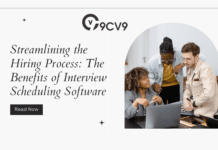













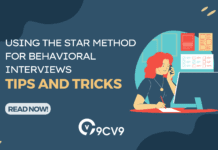
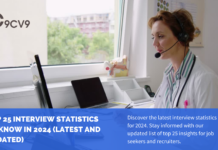
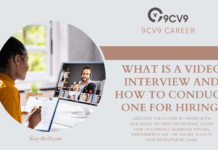




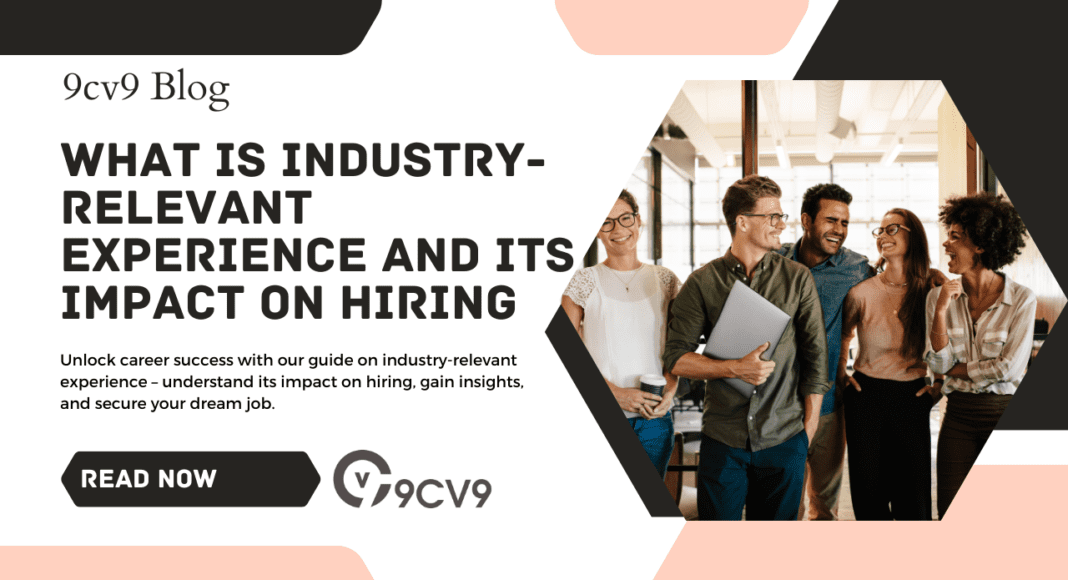


![Writing A Good CV [6 Tips To Improve Your CV] 6 Tips To Improve Your CV](https://blog.9cv9.com/wp-content/uploads/2020/06/2020-06-02-2-100x70.png)


